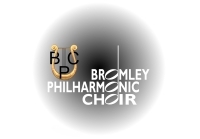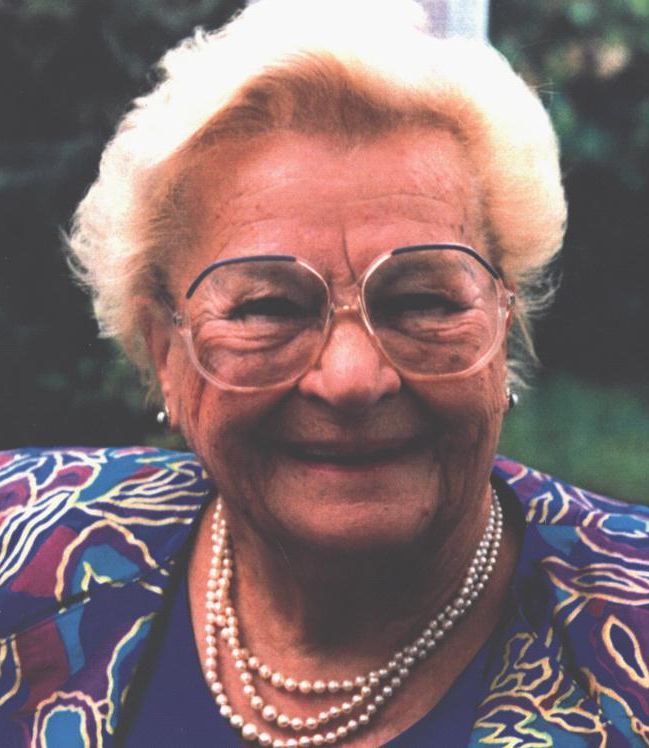
Audrey Langford
was the founder and first Music Director of the Bromley Philharmonic Choir, and could claim to have been the doyenne of voice training and coaching. To her, singing was the breath of life.
was the founder and first Music Director of the Bromley Philharmonic Choir, and could claim to have been the doyenne of voice training and coaching. To her, singing was the breath of life.

She originally studied piano at the Royal College of Music,
with singing as a second study. But when she left in 1933, it was to become the youngest singer at Covent Garden,
Sir Thomas Beecham having invited
her to appear there. She continued to sing in his Wagner seasons until the outbreak of war. She also gave a
series of song recitals for the BBC, replacing
Dame Maggie Teyte at short notice. She spent the war years entertaining the troops with
ENSA
(including a special performance for Queen Mary at Sandringham), started conducting a local choir
and took her first steps towards teaching. As an experiment, she helped a young girl who had ambitions to be an
opera singer. Her name was Josephine Veasey, and she
became a leading mezzo-soprano.
Consciously or not, she had found her vocation. She began to teach, alongside her already prospering career as a performer, and her conducting activities. Soon, however, a perforated ear-drum brought her own singing career to a premature end. That left conducting and teaching. She founded and conducted the Bromley Philharmonic Choir and the Kentish Opera Group, challenging them both with an unexpected and adventurous repertoire, including many world premières.
In the 1970s she began to be invited to give master classes all over the world: together with her husband Andy she travelled to Santa Fe, returning there annually for more than ten years. She was also regularly asked to Chicago, New York and Sydney, where she grew to like spending the winter months. In the 1980s she frequently took classes at the Royal Northern College of Music in Manchester. She relinquished the conductorship of Bromley Philharmonic Choir in 1981 for two reasons: firstly she was determined that the Choir should continue successfully, and secondly her teaching career took her abroad far too often for the rehearsals of the Choir to have the continuity they needed.
Consciously or not, she had found her vocation. She began to teach, alongside her already prospering career as a performer, and her conducting activities. Soon, however, a perforated ear-drum brought her own singing career to a premature end. That left conducting and teaching. She founded and conducted the Bromley Philharmonic Choir and the Kentish Opera Group, challenging them both with an unexpected and adventurous repertoire, including many world premières.
In the 1970s she began to be invited to give master classes all over the world: together with her husband Andy she travelled to Santa Fe, returning there annually for more than ten years. She was also regularly asked to Chicago, New York and Sydney, where she grew to like spending the winter months. In the 1980s she frequently took classes at the Royal Northern College of Music in Manchester. She relinquished the conductorship of Bromley Philharmonic Choir in 1981 for two reasons: firstly she was determined that the Choir should continue successfully, and secondly her teaching career took her abroad far too often for the rehearsals of the Choir to have the continuity they needed.